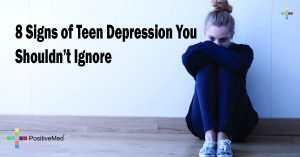
3 Home Remedies For Muscle Spasms In The Neck
In modern society, we are always looking down at our phones, our computers and tablets. Posture is no longer of the importance it once was, and so we slouch and lean our heads to one side or the other. This may allow us to chalk something like neck spasms up to the side effects of a technologically advanced society; however, there are different causes which could attribute to neck spasms. Likewise, different causes have different fixes.

The most probable causes for neck spasms are: Tics, muscle strains or muscle tension. All of which are relatively harmless, although annoying. Summit Medical Group suggests several different methods for coping with these types of neck spasms without the help of a doctor:
Stretching: Allow your head to lean in different directions, without straining, creating a nice stretch in the neck muscles.
Massage: You can do this yourself, have someone you know do it, or have it professionally done.
Ice or heat: You can use ice to reduce any swelling that be causing the spasms. After the swelling has gone down, you can use a heat pad or a warmed towel to help relax the neck muscles. **Heat should not be used if swelling is present.
If these techniques do not work. You may need to see a doctor to determine the cause of your spasms, or a way by which to manage it. If the spasms are related to muscle strain, tension or arthritis, your doctor may choose to follow one of the following avenues:
Physical Therapy: Your physician may choose this route if you have sustained an injury or have a misalignment in your vertebrae.
Injections: Your doctor may opt to give you steroid injections into your neck to help your body regulate the source of the spasms.
If your muscle spasms are being caused by something other than muscle strain, tension or tics, possible culprits may include:
Cervical dystonia: This is speculated to be caused as the result of a disturbance in the chemicals created in the brain — causing increased nerve signals. The increased nerve firings cause the neck to be jerked in one of four ways.
Cervical sponylosis: This usually occurs in result of abnormal growths on the spinal vertebrae, causing extra wear on the cervical spine.
Spinal stenosis: A narrowing of the spinal column which puts pressure on nerves in the spinal cord.
Meningitis: This viral infection most commonly occurs in people under 30 and can be life threatening. If your neck spasms are accompanied by fever, vomiting, mental status changes, sensitivity to light or extreme headache, seek medical attention immediately.
The treatment for these more intrusive neck spasm culprits vary, but should be addressed appropriately by your physician.







